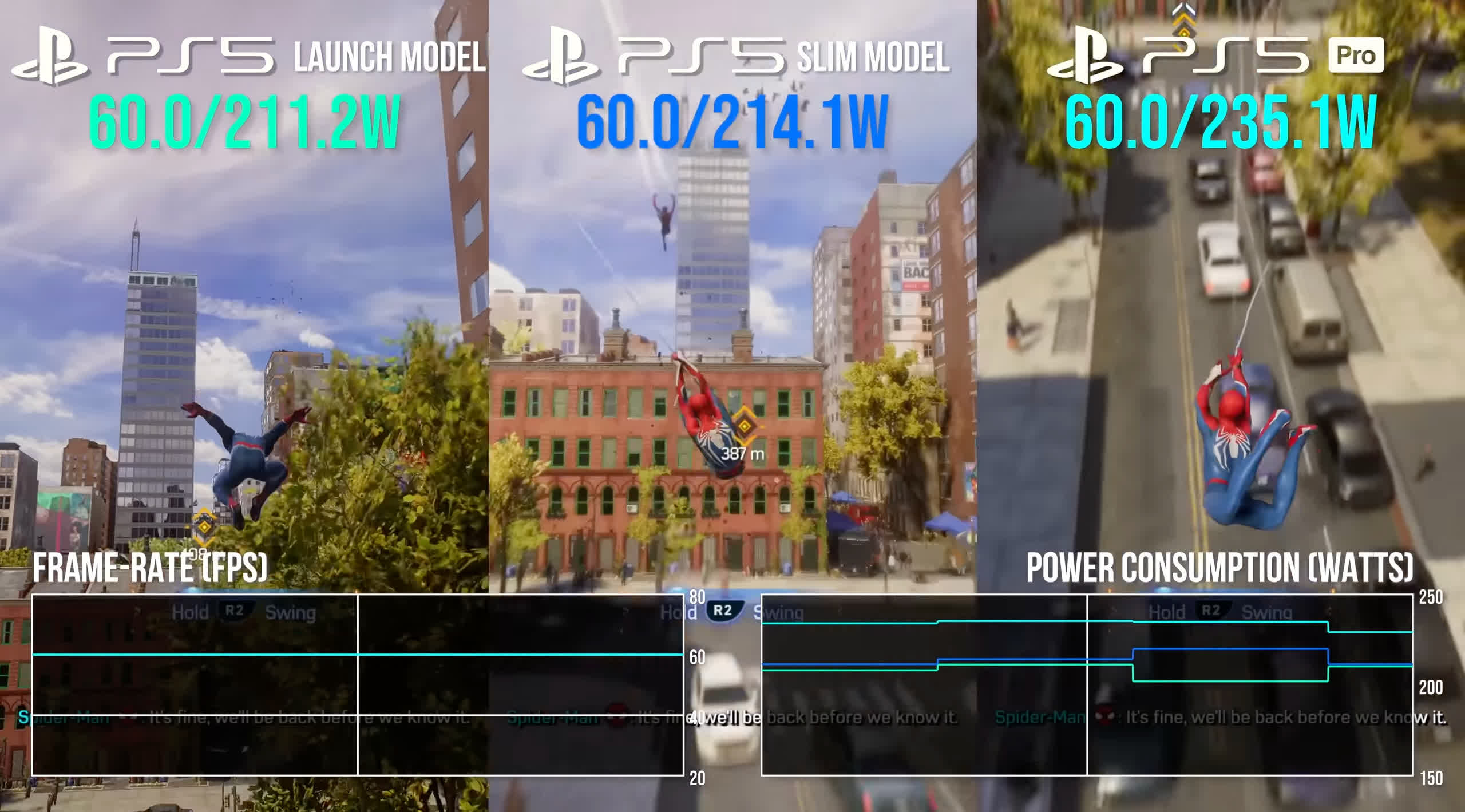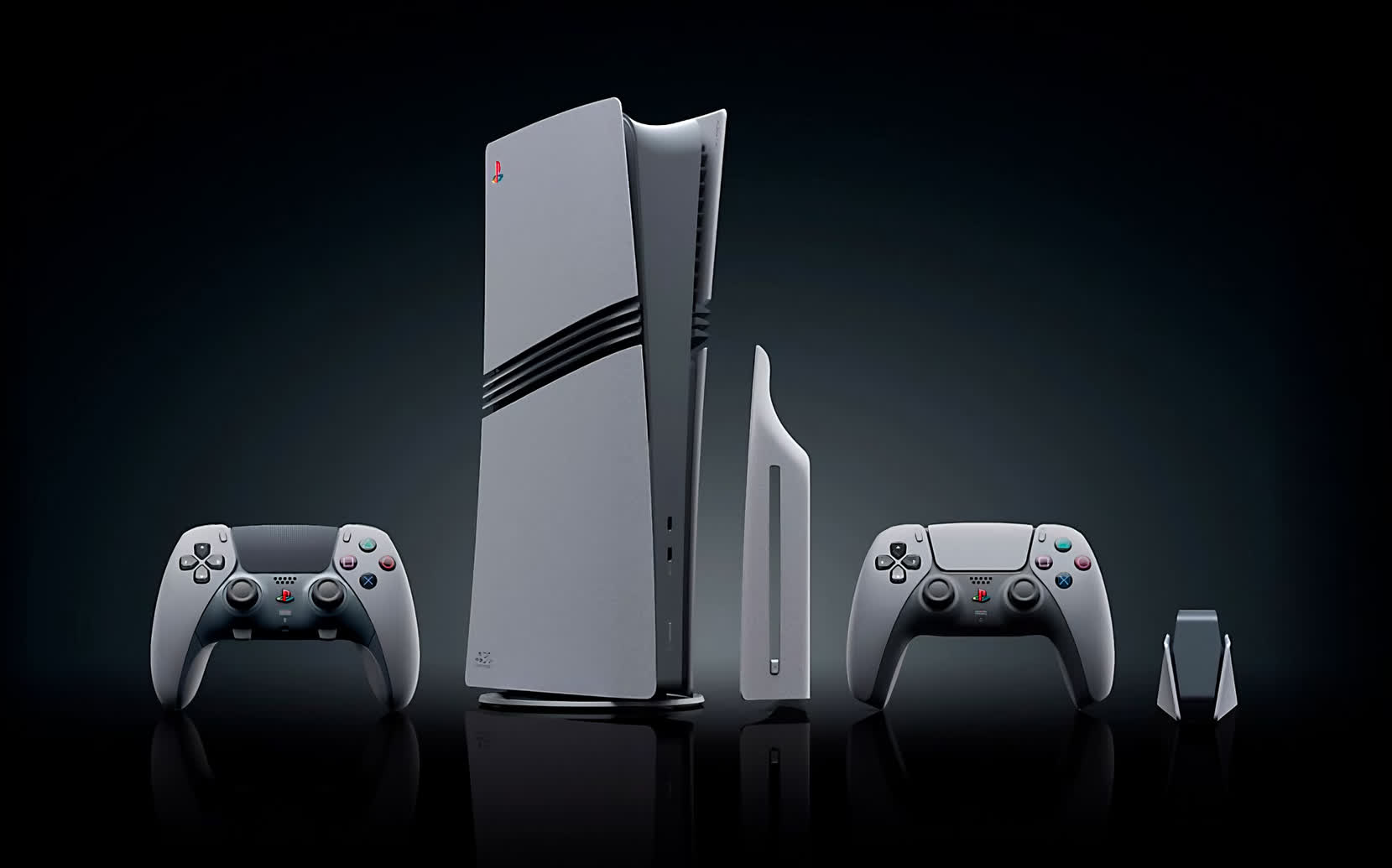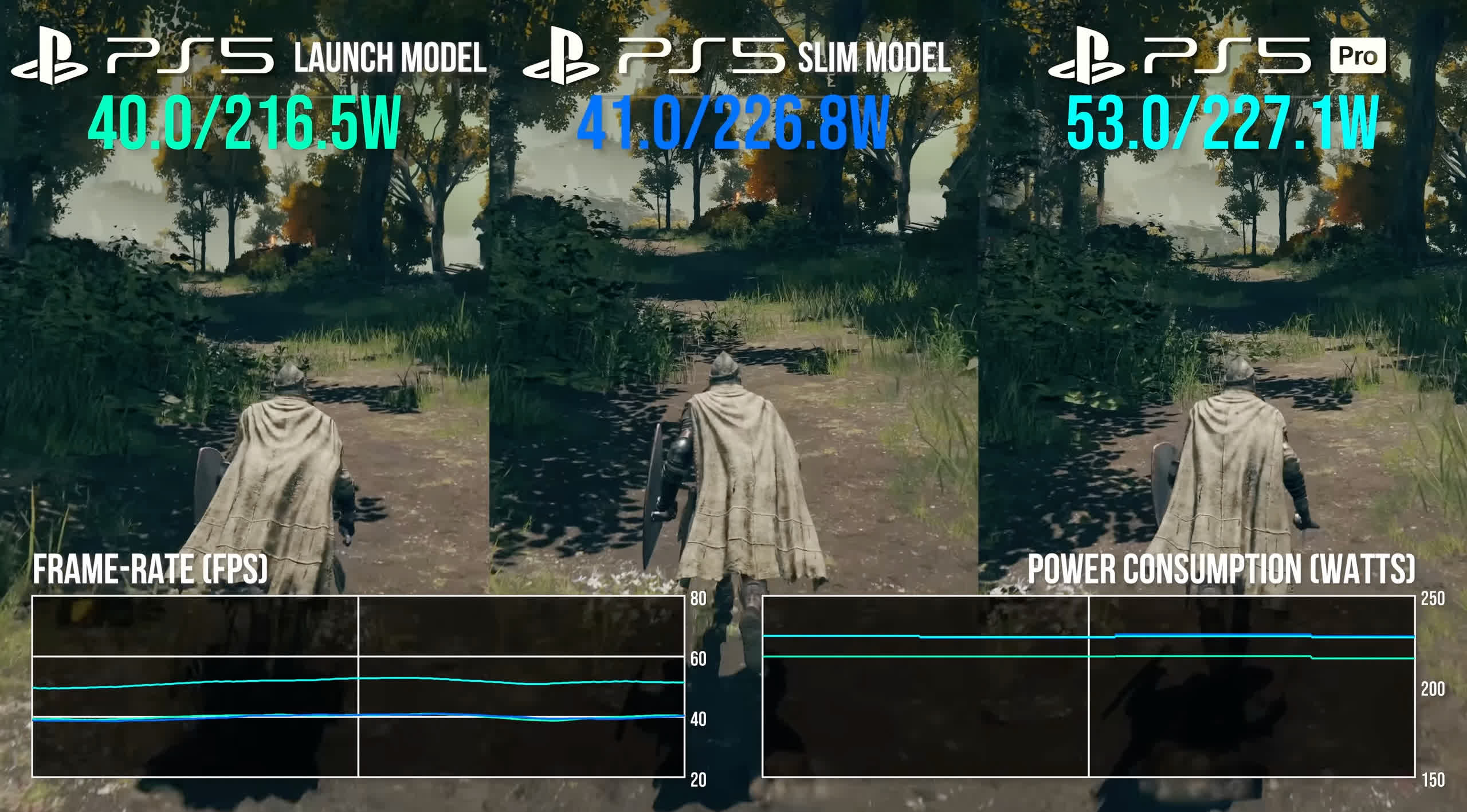In brief: The PlayStation 5 Pro is finally here. And while leaks had already indicated the kind of performance uplifts to expect, the power consumption has surprised reviewers. Impressively, the console churns out roughly 30% higher frame rates than the previous models while sipping only marginally more power.
Released with a $699.99 price tag, the PS5 Pro commands a $200 premium over the base PS5's launch MSRP. But for that extra cash, you're getting some serious under-the-hood upgrades. Most notably, the Pro packs a faster 16.7 TFLOP RDNA-based GPU, aided by Sony's proprietary PSSR upsampling tech. Also, while it retains the same eight-core Zen 2 CPU as the standard model, it gets a 10% clock speed boost. The Pro also touts 2 additional gigabytes of DDR5 RAM.
These enhancements should translate to considerably better performance in both PS5 Pro-optimized games and regular PS5 titles. But of course, with great performance comes... well, maybe not that much extra power draw, surprisingly.
Digital Foundry took a deep dive into the PS5 Pro's energy consumption compared to the base model and a PS5 Slim variant. Their findings were surprising: The Pro sips only slightly more juice despite the upgrades.
In graphically demanding titles like Elden Ring, Spider-Man 2, and F1 24 running at top quality settings, the PS5 Pro's power usage hovered around 228-240 watts. That's not too shabby considering the standard PS5 consumed 200-218 watts in the same games. The Slim model was the real power-hungry anomaly, consuming almost as much electricity as the Pro despite using the same silicon as the base PS5.
Of course, no two silicon chips are created equal. The Slim model's higher power consumption can be attributed to the quality of its chip. Maybe Digital Foundry's test unit was powered by whatever the opposite of a silicon lottery is.

That said, the modest power increases on the PS5 Pro translated to notably higher frame rates. Digital Foundry recorded a staggering 30-35% performance uplift in Elden Ring's quality mode on the Pro versus the base PS5. The game maintained frame rates comfortably above 50fps on the Pro compared to dips into the 30s on the standard console. This is even more impressive considering Elden Ring isn't an explicitly Pro-optimized title.
The Pro widens the gap further in games built to harness its capabilities. Alan Wake 2 and F1 24 both leverage advanced ray tracing features like reflections and ambient occlusion – visual candy that the base PS5 simply can't replicate as impressively.
All said, while we are not ready yet to forgive Sony for the Pro's pricing, at least you're getting the most powerful gaming console money can buy for that amount.

